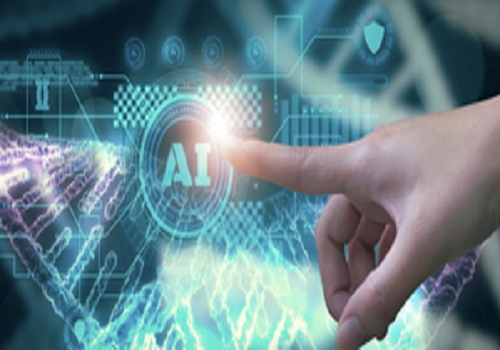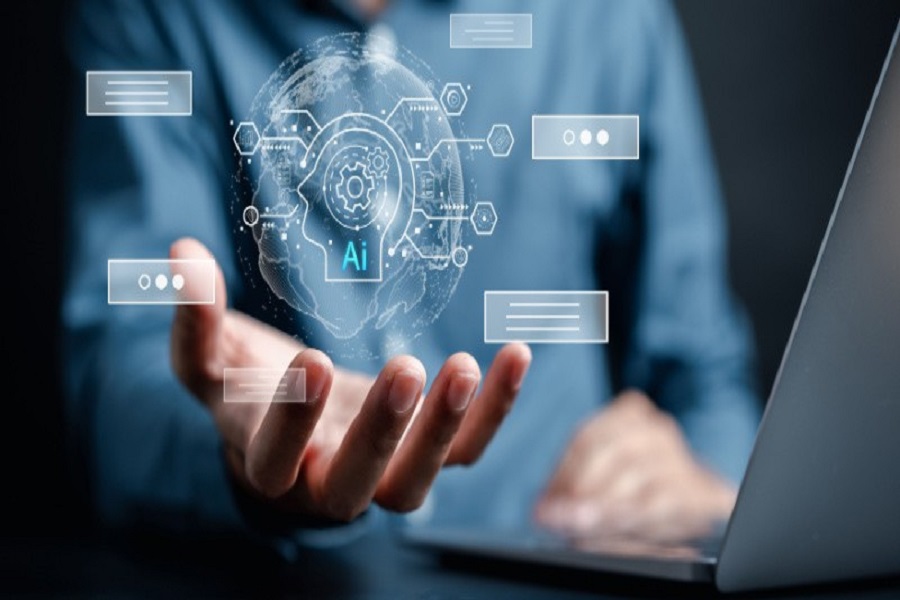Exclusive Authored Article How AI helps in Transforming Businesses Rajesh Shukla

How AI helps in Transforming Businesses
The rise of Artificial Intelligence (AI) is reshaping the business world at a rate that has never been seen before. From the performance of daily tasks to the provision of predictive insights, AI has significantly changed the way enterprises function, develop and compete. Companies from different industries are using AI to innovate their products, to make business processes more efficient, and to take care of the customer experience. Although one may wonder how artificial intelligence works to make businesses grow; sometimes future scenarios are not quite clear.First of all, let’s take a look at how AI is changing the most critical features of today’s business world.
1. Automation and Operational Efficiency
AI is something that companies have been using mainly automatically in their workplaces, which, to some degree, is not that different. Automation accounts for the majority of the AI influence, almost 70% in particular.
In manufacturing, logistics, and customer service, automation technology is being utilized to complement human efforts and, as a result, boost production by reducing the rate of error and increasing the speed of delivery. For instance, in customer service, AI chatbots andconversational AI virtual assistants provide customer service 24/7, when thecompany's live agents are not available, and they resolve customers' issues ina matter of seconds.
The human labour involved in the area of customer supportis reduced with the help of AI, which in turn can result in the Increasedservice efficiency of the employee. Furthermore, AI in logistics helps theseactivities by way of shipment forecasting, inventory tracking and automatedshipment.
2. Data-Driven Decision Making
Today, information is the heart of commercial enterprises and AI which can process and analyse a huge amount of data is playing a crucial role in reshaping companies' decision-making styles. This branch of machine learning sifts through historical and live data to identify trends and offer solutions which are useful to management. Organizations can make use of these findings to make informed choices about opportunities ranging from market trends to customer’s taste perspectives.
Just one example of AI is AI retail, which is utilized to analyse customer behaviour and predict the trend of the related goods.AI makes financial institutions safe by using risk assessment, fraud detection, and forecasting market fluctuation.
AI technology helps medical people by analysing medical reports and images related data that assist doctors to diagnose and plan for the treatment.
3. Improved Customer Experience
AI is improving the way a business does business with its customers. The way you let a visitor on an e-commerce site find where they might like the product you wish to suggest to them, based on their preferences, to predictive solutions for customer service, AI blends experiences so they are more likely to involve and satisfy its customers.
Netflix and Amazon are excellent examples of companies that use AI to deliver personalized content and product recommendations through behaviour-driven observation. For instance, AI analyses and studies browsing history, purchases, and how users interact to curate suggestions that resonate with them. Personalization thus not only augments customer experience, but it also acts as a driving force behind selling, increasing customer loyalty.
In addition, with AI-based tools for sentiment analysis, corporations are able to track consumer feedback and sentiment over time. This way, they can adjust their products and services before things get even worse for them.
4. Improvisation of Products and Services
It is a fact that AI also triggers new, more effective, and generally better solutions to the product and service development puzzle. The very existence of AI has enabled businesses to create smarter products and better end-user value. The more the consumer becomes educated and uses smart products, the product then becomes a more intelligent one. As a good example, AI is employed in the automobile industry, where companies make use of it to fabricate self-driving cars, and on the other hand,the healthcare industries rely on it to develop more precise machinery fordiagnosis.
The new income streams for all companies in the entire economy emerge from AI-led innovations. AI-based designing, prototyping, as well as testing have, in this connection, not only shortened the time it takes companies to market new products but also allowed them to create better quality products. In the fintech industry, AI is driving towards the development of personalized wealth management systems that are more effective by combining the customer with a smart algorithm.
5. Predictive Analytics and Market Insights
That way, if AI is set to predict future trends from past trends, then businesses are better prepared to keep up with the curve. Predictive analytics will allow companies not only to predict market changes and customers' behaviour but to be even ready for internal operational challenges. With the power of this foresight, businesses can take proactive decisions that lead to improved resource optimization and general improvement in business performance.
Retailers would make sell-forward predictions and manage their stock levels, keeping them away from risks of overstocking or understocking. AI-powered tools in marketing predict the kind of consumer behaviour that is anticipated to buy products in the future and helps business houses make more effective marketing campaigns. The same procedure is followed even in areas like finance, where AI models predict market trends and advice investment decisions.
6. AI in Human Resources and Recruitment
AI is transforming human resource management, starting from recruitment up to and including the employment of people. It can scan thousands of resumes within seconds, and based on pre-defined criteria, it can sift out the best person for that specific role from each resume. It thereby accelerates the recruitment process and brings the right talent for any business.
This is not just recruitment alone; there's a serious push for employee engagement and development through AI. Tools will analyse performance data, identify gaps in the skill profile, and recommend training and predict attrition, providing the HR teams with early indicators to retain top talent.
7. Future of AI in Business
The progress of AI for businesses depends on the things that may take place in reducing the specialist issue of technology. The thing is, companies will embrace AI as an innovation tool and a means of changing the process. It can ensure the proper coordination of running businesses with AI-driven decision-making processes being carried out by the AI machines on their own. Now, the ethical AI principles that are the developing of business must be the responsibility of doing it in a transparent way as the business is the main actor in the AI era. It is not only the policies around data privacy and the issue of algorithm bias, but also it is the bigger philosophical issues that are connected with the relationship of AI and the society.
AI is not a trend; it has become important as it brings changes of a fundamental nature in almost all branches of business. It allows businesses to operate more efficiently and compete on a higher level through process automation, better customer relations, and innovation. The companies that are already working with AI technology are those that will have a better future by using AI as a tool for new developments and business growth.
The Writer is Mr Rajesh Shukla, Chief Strategist, National Intellectual Advisory, Mentorat Venture Studio Capital, Jagoo Nari and Padhega Bharat



















